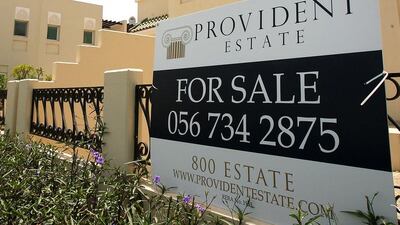The UAE’s non-oil economy will this year grow at its sharpest rate in seven years, the Institute of International Finance has forecast.
“Leading economic and financial indicators for the UAE in the first quarter of this year point to a further acceleration of non-hydrocarbon growth to 5.2 per cent in 2014,” said Garbis Iradian, the deputy director for Africa and the Middle East at IIF, the trade group of financial institutions, speaking in Dubai yesterday.
Levels of non-oil growth are closely watched by economists covering the GCC as a broad gauge of the performance of the economy, as well as serving as an insight into diversification efforts.
The strength of Dubai’s economy and the non-oil parts of Abu Dhabi’s economy have picked up since the global financial crisis and a debt crisis in Dubai in 2009 dented investor sentiment. Underpinning growth in the past year have been rises in equity and property prices, strong airport arrival and purchasing managers’ index (PMI) data, as well as an improvement in credit default swap spreads, said the IIF.
It forecast overall GDP growth to ease to 4.2 per cent for the year, down from 4.7 per cent last year, because of a slowdown in oil output. Dhabi's economy would expand at 5.6 per cent, its highest rate since 2007, it estimated. Dubai Statistics Centre forecast yesterday that growth would reach close to 5 per cent this year.
“It is expected that growth, according to available information, will reach around 5 per cent in 2013 compared to 2012,” the executive director Arif Obaid Al Muhairi said on the statistics office’s website. “We expect that the current year will witness growth close to these rates.”
The IIF addressed several risks to the outlook for the UAE’s economy.
It said the probability of a large correction in the property market was "fairly low", given the measures by the authorities to cool down the property market. Concerns have escalated about the potential for a speculative bubble after prices rose by an average of 45 per cent last year in key Dubai neighbourhoods, according to the website propertyfinder.ae. In response, the Central Bank has introduced caps on mortgage lending, while property fees in Dubai have also risen.
The IIF said investors have been more cautious this time around, while policymaking had improved and credit growth — a key feature of asset bubbles — had remained relatively modest despite an acceleration last year. Credit growth in December was 7.1 per cent, well below the average of 18 per cent for the period 1996 to 2012, according to the IIF.
It also said that the transaction value of land sales was not excessive. The IIF cited Dubai Land Department figures showing the transaction value of Dubai property sales was US$38.3 billion last year, compared with $65.1bn in 2008.
The IIF also cited figures showing the UAE’s house price-to-income ratio was the lowest among similar emerging and developed economies and below the peaks of 2008. Finally, private capital inflows were, so far, still below their peak of 2007, it added.
The other risk the IIF cited was the risk of a fresh build-up of debt in Dubai. Dubai was given a boost in March when the Abu Dhabi Government and the Central Bank agreed to roll over, until 2018, some $20bn of debt that dates to the depths of the 2009 financial crisis.
“This does not wipe out the debt, it simply pushes it back five years,” said George Abed, senior counsellor and director for Africa and the Middle East at the IIF. “The total gross value of Dubai’s debt to GDP is still way above GDP — something like 137 [or] 138 per cent.”
He said it was important Dubai did not get into the same pattern of financing through debt as it did during its boom before the 2009 financial crisis.
tarnold@thenational.ae
Follow us on Twitter @Ind_Insights

